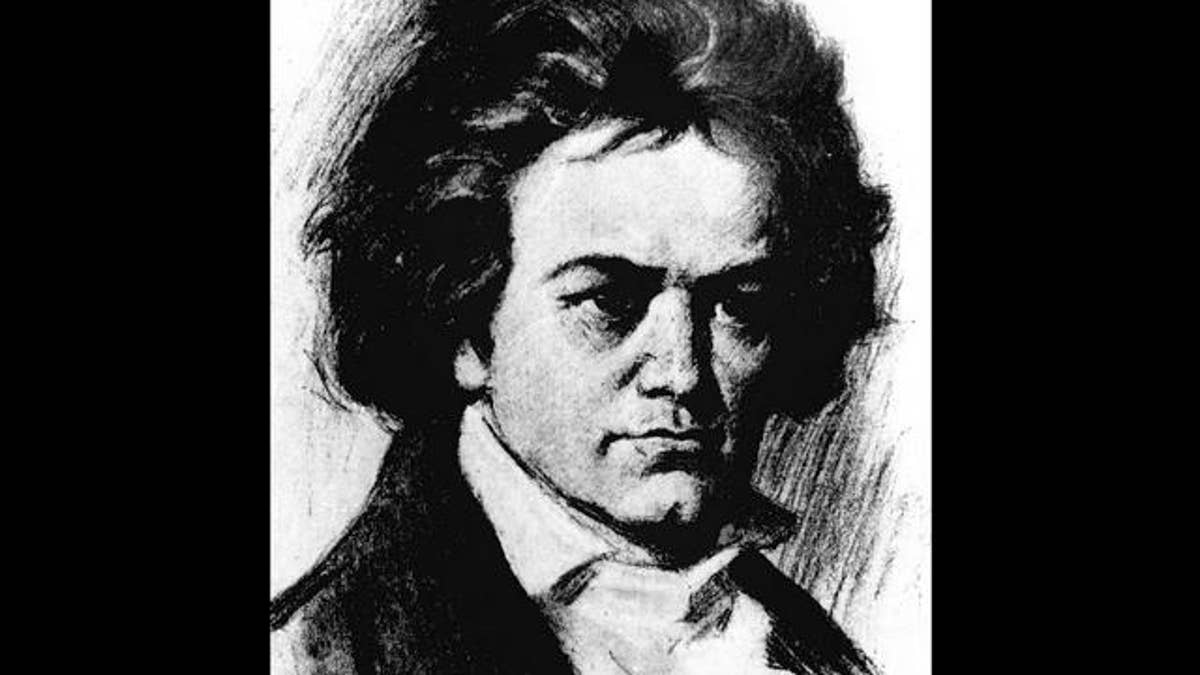
Sketch of Ludwig Van Beethoven, German composer (AP)
Researchers analyzing patterns in Beethoven’s music believe the famous composer may have suffered from an irregular heartbeat, evidenced by what they say are musical arrhythmias found in some of his work.
The authors, which include a medical historian, cardiologist and a musicologist from the University of Michigan at Ann Arbor and the University of Washington School of Medicine in Seattle, further suggest that Beethoven’s believed deafness may have heightened his awareness of his heartbeat, causing him to compose music by following his heart.
Arrhythmia refers to any change from the normal sequence of electrical impulses that causes the heart to beat too fast, too slow or erratically, according to the American Heart Association. They can be completely harmless or life-threatening.
In the study, which was published in the journal Perspectives in Biology and Medicine, the team analyzed several of Beethoven’s compositions and found proof of “musical electrocardiograms,” like those found in readouts of heart rhythm testing equipment, Medical News Today reported.
Researchers studied Beethoven’s “Cavatina”, the final movement of String Quartet in B-flat Major, Opus 130. Beethoven directed his followers to play the piece “heavy of heart,” which indicates sadness, or literally pressure on the heart.
The team noticed in the middle of the piece that the key changes to C-flat major, and together with the unbalanced rhythm evokes a dark emotion and disorientation, similar to “shortness of breath,” according to the report.
“The arrhythmic quality of this section is unquestionable,” the authors noted.
There were other pieces of the famed composer’s work that had arrhythmic patterns, like Piano Sonata in A-flat major, Opus 110.
“While these musical arrhythmias may simply manifest Beethoven’s genius, there is a possibility that in certain pieces his beating heart could literally be at the heart of some of the greatest masterpieces of all time,” Zachary D. Goldberger, assistant professor of medicine in the cardiology division at UW School of Medicine said, according to Medical News Today.
Beethoven is believed to have also suffered from liver disease, alcohol abuse, kidney disease, Paget’s disease and others.
“We can’t prove or disprove that Beethoven had many of the diseases he’s been supposedly afflicted with because almost all of today’s diagnostic medical tests didn’t exist in the 18th century, and we are interpreting centuries-old medical descriptions into the context of what we know now,” Goldberger said.
